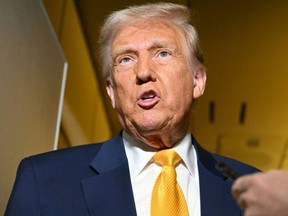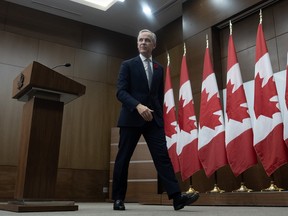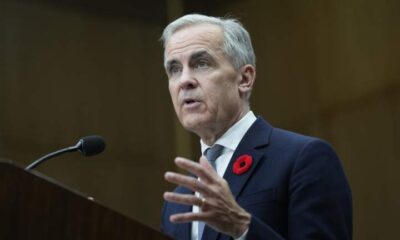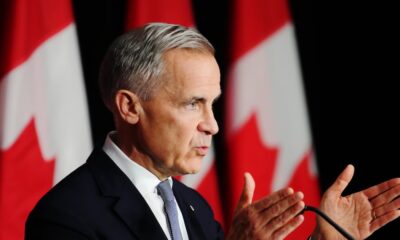Politics
Analyzing Power: Trump, Emergency Authority, and Historical Parallels

In a recent analysis, political commentator Jonah Goldberg argues that while Donald Trump may not be a dictator in the traditional sense, his pursuit of unchecked power poses significant risks. This discussion draws parallels with historical figures, particularly Julius Caesar, who exemplified the dangers of concentrated authority during times of crisis.
Goldberg references the Roman Republic, where the title of “dictator” was bestowed temporarily to address emergencies. Typically, this authority lasted no more than six months, reflecting a societal aversion to monarchy. Caesar’s rise to power transformed this image, ultimately leading to his designation as dictator for life. Goldberg highlights how this shift marked the beginning of a cautionary tale regarding the potential for democratic systems to collapse under the weight of authoritarianism.
The concept of emergency powers remains relevant in contemporary politics. Throughout history, U.S. presidents have invoked such powers during crises, but Goldberg emphasizes that these should be limited to genuine emergencies. He cites examples of past presidents, including Joe Biden, who attempted to leverage the COVID-19 pandemic to enact policies beyond their constitutional authority. Trump’s declaration of a trade imbalance as a national emergency illustrates a similar trend, raising concerns about the implications of unchecked executive authority.
Goldberg points out that under the International Emergency Economic Powers Act (IEEPA), which was enacted in 1977, Congress is mandated to review presidential actions every six months. Nevertheless, he notes that congressional Republicans have altered protocols, limiting their ability to check the president’s authority. This dynamic poses a significant risk, as it allows for the potential misuse of power under the guise of emergency justification.
In the context of U.S.-Canada relations, Trump’s recent tariff announcements, including a proposed 10% increase based on a pro-free trade ad from Ontario, lack a substantive emergency justification. Goldberg questions whether trade deficits should be classified as emergencies, drawing a parallel to everyday transactions, such as grocery shopping, where trade deficits are common yet do not constitute crises.
Goldberg concludes by asserting that while Trump may not fit the classic definition of a dictator, the true threat to republican governance lies in the willingness of individuals to empower leaders under false pretenses of urgency. He echoes Ben Franklin‘s sentiment regarding the fragility of republics, suggesting that they fail not necessarily because of tyrants but due to the complicity of those who enable them.
As this discussion unfolds, it raises critical questions about the balance of power in democratic systems and the responsibilities of both leaders and citizens in safeguarding against authoritarianism. The historical context serves as a reminder that vigilance is essential to preserve democratic ideals.
-

 World4 months ago
World4 months agoScientists Unearth Ancient Antarctic Ice to Unlock Climate Secrets
-

 Entertainment4 months ago
Entertainment4 months agoTrump and McCormick to Announce $70 Billion Energy Investments
-

 Lifestyle4 months ago
Lifestyle4 months agoTransLink Launches Food Truck Program to Boost Revenue in Vancouver
-

 Science4 months ago
Science4 months agoFour Astronauts Return to Earth After International Space Station Mission
-

 Technology2 months ago
Technology2 months agoApple Notes Enhances Functionality with Markdown Support in macOS 26
-

 Top Stories3 weeks ago
Top Stories3 weeks agoUrgent Update: Fatal Crash on Highway 99 Claims Life of Pitt Meadows Man
-

 Sports4 months ago
Sports4 months agoSearch Underway for Missing Hunter Amid Hokkaido Bear Emergency
-

 Politics3 months ago
Politics3 months agoUkrainian Tennis Star Elina Svitolina Faces Death Threats Online
-

 Technology4 months ago
Technology4 months agoFrosthaven Launches Early Access on July 31, 2025
-

 Politics4 months ago
Politics4 months agoCarney Engages First Nations Leaders at Development Law Summit
-

 Entertainment4 months ago
Entertainment4 months agoCalgary Theatre Troupe Revives Magic at Winnipeg Fringe Festival
-

 Top Stories1 week ago
Top Stories1 week agoFamily Remembers Beverley Rowbotham 25 Years After Murder


















